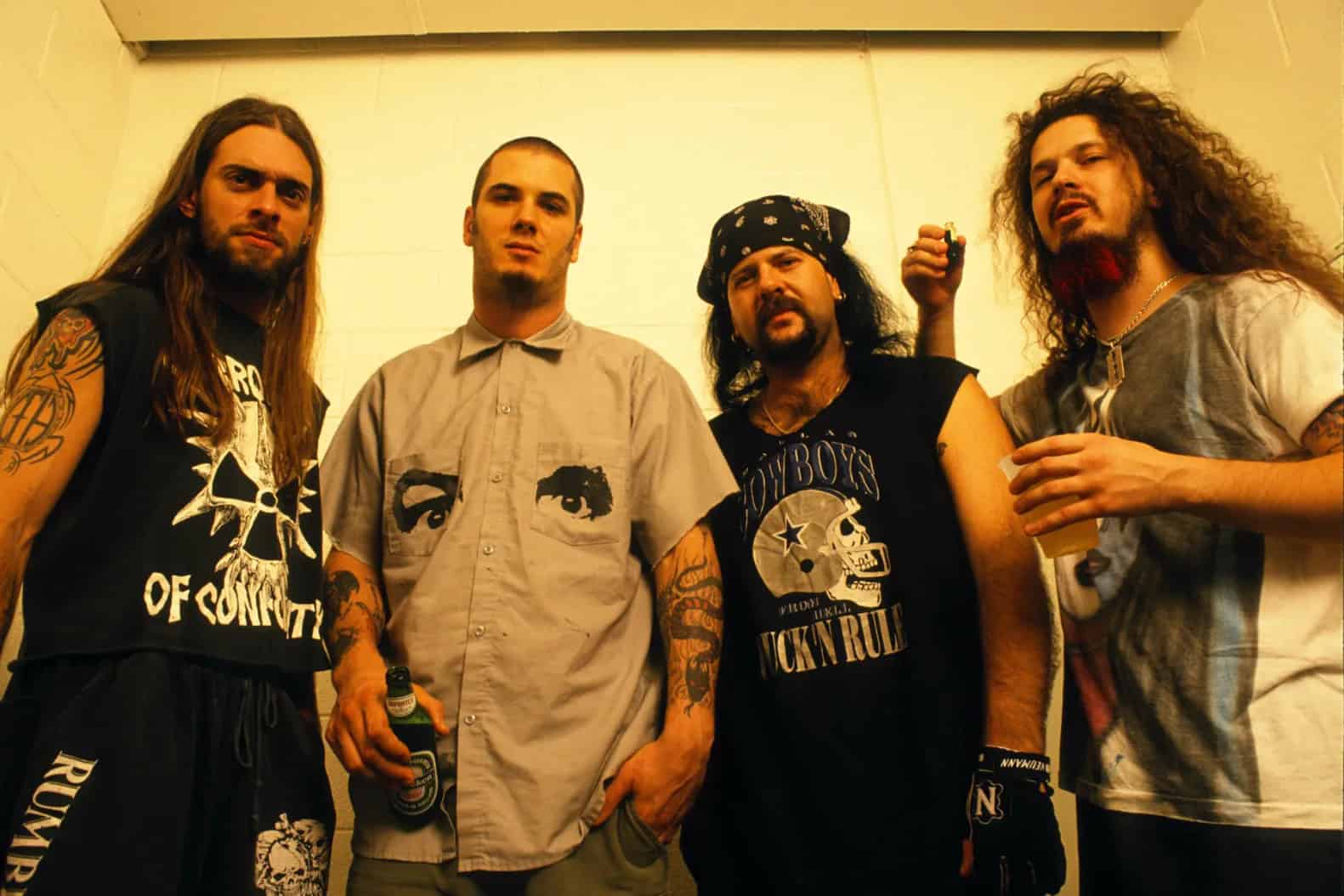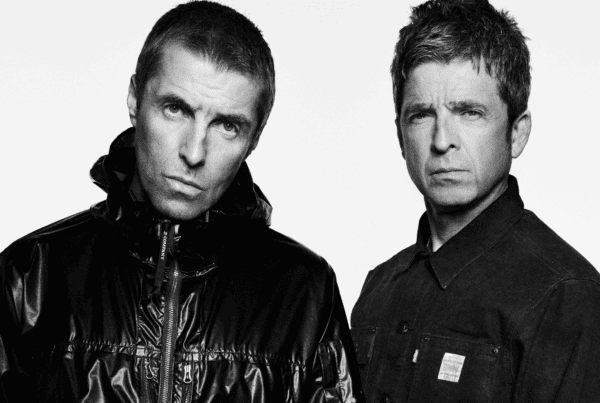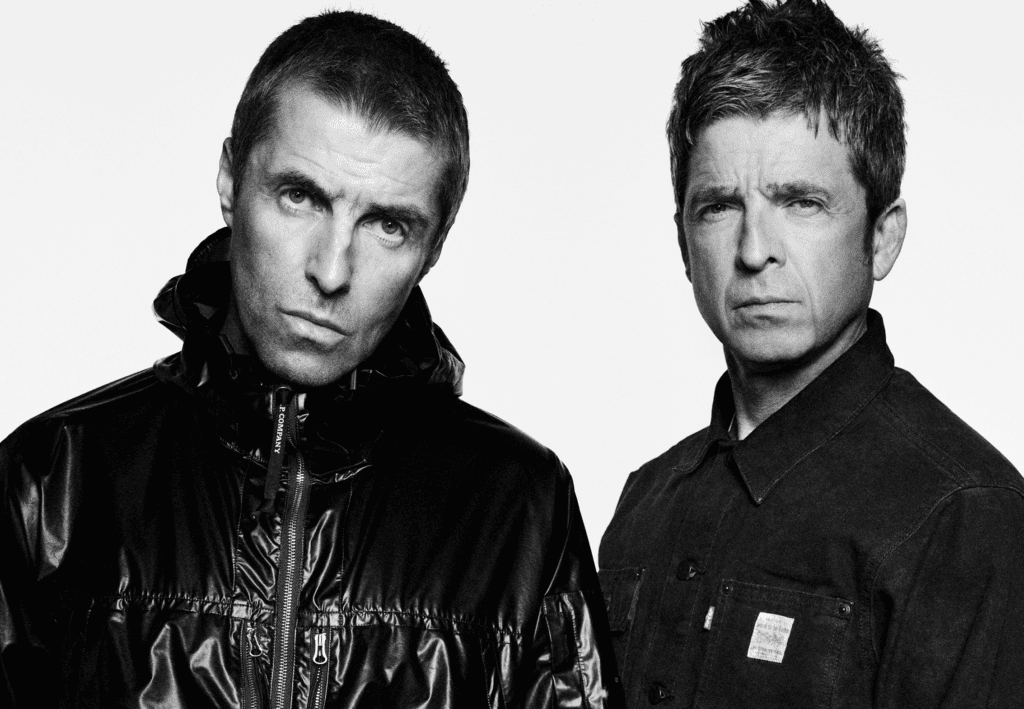
Photo Credit: Joe Giron
Changes in sound can often be a good thing. They allow a band to evolve musically, as well as prevent them from painting themselves into a corner. We all know it’s bad news when that happens *ahem, Metallica, ahem*. Whichever way you slice it though, it’s an intricate balancing act. First, you actually have to pull the transition off well, which is a lot easier said than done, and second, you have to hope that the fanbase are receptive to the change and come along with you. Truth be told, that’s often the most difficult part, as it’s more or less a complete shot in the dark as to public reception. It could be the greatest thing ever and some might still hate it.
That aside, I thought it would be interesting to take a look at such sonic deviations, to try and determine which sonic changes were made for the better, and which others for the worse.
Lemonheads – after ‘Lovey’ – Punk(ish) to Power Pop
You’re welcome Dad, this one’s for you. Having been brought up with the music of the Lemonheads my entire childhood, I have a much better knowledge of their back catalogue than I really want to have. In my dad’s head-cannon, Evan Dando’s discography truly came into it’s own with the release of ‘It’s a Shame About Ray’ in 1992, the scuzzy, fuzzy, rock present on much of their previous albums, for the most part being treated with a passing dismissal. Personally, I think it’s a shame, because some of that stuff I actually quite like. The debut ‘Hate Your Friends’ is pretty much your typical, fairly lo-fi thrash-n-bash punk affair, so it’s not my favourite. That’s not to say there isn’t stuff to be enjoyed though, as tracks like ‘Second Chance’ do subtly foreshadow the anthemism to follow.
‘Creator’ still has its fair share of punk tracks like ‘Die Right Now’, but it’s definitely lighter in tone, with some more anthemic rock tracks like ‘Falling’, and even a handful of acoustic cuts. ‘Lick’ is much the same kind of sonic melting pot, with maybe a bit more of an emphasis on the punk side, but still quite enjoyable. The contrast between tracks like ‘A Circle of One’ and ‘Glad I Don’t Know’ should seem pretty stark by this point. Then, with ‘Lovey’, it acted as a very interesting bridging gap. Tracks like ‘Left For Dead’ and ‘Stove’ do display the poppier characteristics of future releases rather well, just maybe with a noisier sheen. Then, we got ‘…Ray’, and everything changed.
This might seem like a copout, but at the end of the day I’m glad Evan and Co. made the changes they did. After all, you have to admit, we got some serious bangers out of it. The songwriting and infectiousness on tracks like ‘Rockin’ Stroll’, ‘If I Could Talk I’d Tell You’ and ‘Down About It’ is absolutely undeniable. Meanwhile, Dando’s ballad writing ability on ‘Outdoor Type’ or ‘My Drug Buddy’ shines through quite nicely. I think we came out with a win ultimately. His newest single ‘Fear of Living’ has grown on me a lot recently, and so with his first album of original material in over 18 years coming soon, I really hope he can live up to it.
Pantera – after ‘Power Metal’ – Glam Metal to Groove Metal
In a lot of ways, Pantera optimised “coolness” in metal. They were tough, they played fast, they played hard, and they played loud. Not to mention, groovy as all hell. However, what if I told you that Pantera were originally a glam metal band? Yes, you read that right.
On their first album, 1983’s ‘Metal Magic’, the KISS influence is palpable. The Abbott brothers do clearly have skill, that much is unignorable, but it’s cloaked under a mound of operatic vocals, and lactose-intolerance-inducing levels of cheese. Take the track ‘Tell Me If You Want It.’ Slightly dodgy title aside, all you really get here is some fairly average stomping hard rock with a smattering of cheesy keyboards.
Aside from a few slightly heavier cuts like ‘I’ll Be Alright’ or ‘Nothing On But The Radio’, that description can pretty well fit much of the album. It’s very clearly going for a different, “popular ladies man” kind of cool, and it’s not really working. What’s even more dumbfounding is that they for some reason stuck with the same sound more or less for the next two albums.
Admittedly, with the arrival of singer Phil Anselmo on 1988’s ‘Power Metal’, things did liven up slightly, but maybe only to the extent that they had a kind of “hard-edged GnR” thing going on. Hey, I’ll take it though. Their sound was well and truly cemented with the release of ‘Cowboys From Hell’ in 1990.
Inspired by Overkill’s ‘The Years of Decay’, and Terry Date’s production, Dimebag Darrel saw fit to do away with the glam-isms, and adopt a dirtier tone, resulting in an album that broached new levels of gnarliness. Tracks like the title track, ‘Cemetery Gates’, and the iconic ‘Domination’ showcase face-scrunch worthy riffs, steady, super punchy grooves, acrobatic solos, and distinctive, gravelly vocals. In addition, a knack for songwriting was blindingly clear throughout. Along with the thrash bands of the 80s, Pantera was a breath of fresh air for metal.
This change in sound instigated on ‘Cowboys’ would prove increasingly fruitful as their career drew on. It’s follow up, ‘Vulgar Display of Power’ arguably eclipsed it in terms of quality, becoming a stone-cold metal classic, and delivering a number of iconic tracks like ‘Walk’ and ‘Mouth For War’, whose riffs will no doubt be ringing across teenagers’ bedrooms for decades to come. The quality level was kept pretty damn consistent on ‘Far Beyond Driven’ and ‘The Great Southern Trendkill’ too, each of which have their fair share of serious highlights.
Even their final album, ‘Reinventing the Steel’, despite being more lukewarmly received, has a lot to be liked about it. After all, any album with tracks like ‘We’ll Grind That Axe…’ on it are worthy of credit. A few elite bands can boast a successful genre transition, but few can claim a revitalising of an entire genre along with it. Pantera can.
Opeth – after ‘Watershed’ – Progressive Metal to Progressive Rock
Opeth were never exactly what you might call a “straight” metal band, in that they never just played metal. From their start in the mid-90s, they were a force to be reckoned with in the death metal scene. Their grooves were fast and pummeling, their guitars were utterly shredding and mean, yet incredibly virtuosic, and the vocals were at points as graceful as they were guttural. They were the ultimate combination of deadly brutality and technical prowess. Tracks like ‘Forest of October’ were the perfect example.
To go back to my previous point though, they were far from every regular metal band. Even from their earliest releases like ‘Orchid’ and ‘Morningrise’, tracks were often peppered with floral acoustic passages or grand orchestrations, that gave this band a respectfully broad and varied palette, always keeping things interesting. On subsequent albums, like career high point ‘Blackwater Park’, they only developed their range further, taking a stab at multiple ballads like ‘Harvest’ or ‘Isolation Years’, and proving they were damn good at it in the process.
Despite this broadening though, Opeth at least definitively remained a metal band, with 2008’s ‘Watershed’ even containing some of their heaviest material to date. With the following ‘Heritage’ though, something changed. Most of the songs on it still “rocked” I suppose, but in a way that was a lot more “yeahhhh”, and a lot less “AAARRRGGGHHH”, if you follow. Jazz drums, electric pianos, flutes, even for Opeth this was a pretty stark departure.
The mix of more progressive elements combined with grand, sweeping guitar riffs is one that, in theory, I welcome with open arms. I love metal, but hey, I’m also partial to a bit of Tony Williams, Henry Cow, or Floyd at times too. I will say personally that for me, ‘Heritage’ is the most successful at performing that balancing act, because there are tracks like ‘The Lines in my Hand’ that go really hard, but also display amazing musicianship. Furthermore, the songs like ‘Häxprocess’ that have a few more quiet moments I find genuinely captivating and alluring.
The further you get past that point though, my enthusiasm does fade slightly. Admittedly, albums like ‘Sorceress’ do bring back just a touch of that gnarliness, but at least to me, from what I’ve heard, it seems like more and more Opeth are OK with just becoming a slightly harder edged prog rock band. It just doesn’t quite have that same flair or ambition that ‘Heritage’ did. Undeniably, Mikael Åkerfeldt remains a very gifted songwriter and vocalist, but with how it’s manifested itself as of late, I’m not sure how I feel. It’s not bad by any means, but it just doesn’t have that… thing.
Daft Punk – for Random Access Memories – House to Disco/Pop
French duo Daft Punk were undeniably one of the biggest names in house music. Initially making waves with the excellent, if a little rough, ‘Homework’, and tracks like ‘Around The World’ in 1997, the band only evolved their sound as they went along. The pulsed up a record collection’s worth of disco samples to create the future-funk masterpiece ‘Discovery’, spawning massive singles like ‘One More Time’ and ‘Harder Better Faster Stronger’ that still fill up dancefloors today.
The ambitious turn to electro-rock on the following ‘Human After All’ though, while I think it’s worthy of credit, across an album length, proved slightly ill-conceived. Despite regaining momentum slightly with a brilliant live album in 2007, it was clear that for the next album, the vocoded veterans needed a change of approach. We eventually saw the fruits of their labour 8 years later with ‘Random Access Memories.’
The core tenets of the duo’s sound firmly remain intact here: danceable beats, undeniably bright, infectious melodies and catchy, sing-along choruses. Almost every reason you would love Daft Punk is very much accounted for. Emphasis on almost though, because where this album hugely differs is its sonic palette. Thomas and Guy-Manuel all but threw out the 808 kicks and bright, artificial synths here, instead replacing them with much more organic funk grooves and incredibly pristine live instrumentation.
The opener is the perfect illustration of these new changes, as orchestral swells of orchestration and Moog keys cascade over infinitely funky guitars, slap bass and vocoders. Very rarely am I moved to dance involuntarily, but these guys did it. Need I remind you how awesome tracks like ‘Get Lucky’ and ‘Lose Yourself To Dance’ are? I didn’t think so. You better believe there are some fantastically grooving deep cuts too, like the zany and fiery ‘Fragments of Time’ with Todd Edwards, or the laidback, lowrider vibe on ‘Doin It Right’ with Panda bear. The hits are positively endless.
One thing this album also demonstrates, perhaps more than any other Daft Punk record, is that their strength as songwriters is incredible. It’s like a more organic sound palette was the key to everyone unanimously going “holy cow, these guys are genius. You really don’t have to look far for evidence. Not only are all of the tracks I’ve already listed clear examples, but a lot of the slower tracks really hit hard too. Oftentimes their ballads could be a bit hit and miss, but not here. ‘The Game of Love’ is incredibly alluring and moody melodically, with great vocoder use, and an understated yet solid rhythm section. Meanwhile, the levels of melodrama and cry-along hookiness on ‘Instant Crush’ with Julian Casablancas are genuinely epic.
Arguably the most impressive tracks on the whole album though, are those that play with a more progressive, cinematic feel. Take ‘Touch’ with Paul Williams for example. The track starts off with eerie atmospherics, before slowly building to a danceable, horn backed, peppy bit of semi-balladry, only to fall down and build up to a second serene climax. There’s also the closer ‘Contact’, where dramatic synth and organ chords are gradually built on with punchy, frenetic drums and orchestration, up to reaching a peak of dramatic, noisy bliss.
The centrepiece though has to be ‘Giorgio By Moroder.’ Hearing a disco legend telling his enthralling life story over a meticulously crafted and constantly evolving piece of epic, string backed disco-jazz-rock with TRON-esque electronics can be a genuinely flooring experience if it catches you in the right mood. In any case, the cyborg producers proved without a doubt that when it came to songwriting, they were utter masters. So I think it’s safe to say the change paid dividends. In fact, for as different as it is to the rest of their output, I could very easily call it their best. Quite the note to go out on.
So, those are four pretty stark examples of artists drastically changing their sound, and at least for now, it seems like they were mostly for the better, all things considered. You heard me right though, I said “for now”, because hold your horses, hippies and squirrels! I’ve got 3 more up my sleeves! So join me in part 2, where a couple of the examples may not have been entirely positive…






